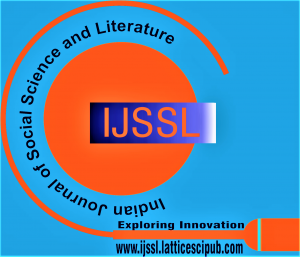![]()
New Reforms in Indian Higher Education: Rethinking the Education Model
Shailaj Kumar Shrivastava1, Chandan Shrivastava2
1Dr. Shailaj Kumar Shrivastava, Principal, K.L.S. College, Nawada. (A constituent unit of Magadh University, Bodh Gaya), Bihar, India.
2Chandan Shrivastava, Applications Developer, Oracle India Pvt Ltd, Plot No. 18, Phase 2, HITEC City, Madhapur, Hyderabad, Telangana, India.
Manuscript received on 08 August 2024 | Revised Manuscript received on 10 August 2024 | Manuscript Accepted on 15 September 2024 | Manuscript published on 30 September 2024 | PP: 42-48 | Volume-4 Issue-1, September 2024 | Retrieval Number: 100.1/ijssl.E114203050924 | DOI: 10.54105/ijssl.E1142.04010924
Open Access | Ethics and Policies | Cite | Zenodo | OJS | Indexing and Abstracting
© The Authors. Published by Lattice Science Publication (LSP). This is an open-access article under the CC-BY-NC-ND license (http://creativecommons.org/licenses/by-nc-nd/4.0/)
Abstract: The National Education Policy (NEP)-2020 will bring flexibility to the curriculum through a multidisciplinary and interdisciplinary approach, a new assessment process, resource empowerment, multiple exit options, and encouraging internationalization. Adopting an open curriculum with transdisciplinary course patterns, including flexibility in electives, has led to progress in skill development, holistic development, community engagement, technological integration, environmental education, and value-based education. Ranking and accreditation will have a significant impact on the quality of education and research. It is necessary to frame an education policy that will give better results in creativity, development of critical thinking, decision-making skills, and problem-solving abilities. The new reforms aim to enhance the quality and effectiveness of future-ready higher education institutions in India. In this paper, an attempt has been made to present various reforms in the Indian higher education system, its regulatory structure, and teaching pedagogy.
Keywords: Higher Education, NEP-2020, Reforms, Sustainability.
Scope of the Article: Education
